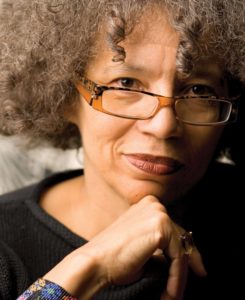
By Beverly Guy-Sheftall
The Essential Connection Between Book Bans and Black Feminism By Beverly Guy-Sheftall In the aftermath of a well-coordinated attack on the College Board’s newly proposed Advanced Placement courses in African American studies, academics, librarians, policymakers, artists and concerned persons from various walks of life are objecting loudly to the banning of books and the removal of critical race theory, Black feminist studies, and Black queer studies — including the work of Kimberlé Crenshaw, bell hooks, Alice Walker, Angela Davis, Cathy J. Cohen — from the AP course and from college curricula more broadly, especially in Florida and other Southern states.
In early May, Professor Khalil Gibran Muhammad, of Harvard University’s Kennedy School, and I wrote an “Open Letter Against ‘Anti-Woke’ Censorship of Intersectionality & Black Feminism” under the auspices of the progressive think tank African American Policy Forum, which was co-founded in 1996 by Professor Kimberlé Crenshaw. The crux of the letter was an appeal to the College Board to “restore the integrity of the AP African American Studies course as originally articulated by Black Studies scholars by restoring the key terms and concepts removed from the course.”
Surprising to many was the attack on course material at the core of African American studies—intersectionality, Black queer studies, and Black feminism. But we reminded our readers that “intersectionality, Black feminism, and Black queer studies have been indispensable in resisting the marginalization of women, the reimposition of heteronormative ideals, and the rigidifying of gender roles.
The publication in 1970 of Toni Cade Bambara’s The Black Woman: An Anthology; Shirley Chisholm’s autobiography, Unbought and Unbiased; Toni Morrison’s The Bluest Eye; and Audre Lorde’s Cables to Rage signaled a literary and political awakening among Black women and the beginning of a clearly defined, radical Black women’s liberation movement that would generate considerable debate, along with hostility among various segments of the population opposed to the politics of both civil rights women’s rights. It is not difficult to explain, more than nearly 50 years later, the venom that Black feminist scholarship and literature continue to unleash.
In Wilfred Chan’s article in The Guardian, “’Cowering to politics’: how AP African American studies became the most controversial course in the US” (February 13, 2023), there is this explanation of the state of Florida’s rejection of the AP course: “Among the things Florida objected to: the course’s discussions on reparations, queer studies, feminist thought and intersectionality—referring to the way various systems of oppression are interconnected. The state also singled out the inclusion of writings by Black scholars like Angela Davis (for being a “self-avowed Communist and Marxist”), bell hooks (for using the phrase “white supremacist capitalist patriarchy”), Kimberllé Crenshaw, who coined the term “intersectionality” to describe the way different forms of oppression interconnect.”
In the midst of the firestorm, the College Board released a revised version of the course in which all of the targeted Black feminist scholars’ writings (among those of other Black progressives as well) were eliminated, along with secondary sources. It is clear to me and other progressive scholars that Black feminist discourse is the most radical and threatening work that has emerged since the 1970s within the context of African American studies. It is anti-capitalist, anti-imperialist, anti-colonialist, anti-heterosexist, anti-patriarchal, and unapologetically truth-telling with respect to what ails the United States. I am reminded of the Combahee River Collective’s 1977 “A Black Feminist Statement,” in which there is this powerful, compelling assertion: “If black women were free, it would mean that everyone else would have to befree since our freedom would necessitate the destruction of all the systems of oppression.”
During this book-banning season in our schools and libraries, it’s no surprise that Black women’s writings, especially Black feminist texts, are under attack. The list includes Maya Angelou’s I Know Why The Caged Bird Sings, Alice Walker’s The Color Purple, Toni Morrison’s The Bluest Eye and Beloved, Nikole Hannah-Jones’s The 1619 Project, and works by other Black feminist scholars. In the words of African American Policy Forum’s “Freedom to Learn” statements in the Open Letter, “Promoters of this racially extremist agenda have banded together with others across the political spectrum to wage a war against their own invented grievance that they have labeled as “woke-ism.” They have attacked librarians, surveilled and harassed teachers, canceled classes, banned books, and weaponized the law to forbid ideas, frameworks, and viewpoints in the nation’s schools, colleges, and workplaces…They broadened their attacks to discredit frameworks that Black women and queer people have produced in order to explain, describe, and transform the conditions of their lives.”
Freedom-loving people are certainly indebted to the decades-old work of Black feminist writers and scholars. It is also clear why we remain the targets of white-supremacist ideologies – because of our unrelenting demands for revolutionary action and a new world.
Beverly Guy-Sheftall is the founding director of the Women’s Research and Resource Center (since 1981) and Anna Julia Cooper Professor of Women’s Studies at Spelman College in Atlanta, Georgia.


